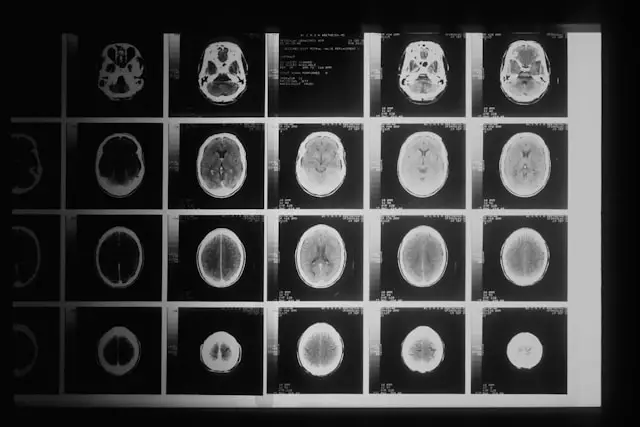
Organic brain damage, also known as acquired brain injury, is a significant health concern that affects millions of people worldwide.
It is a condition where the brain is damaged due to various external factors, leading to changes in cognitive, emotional, and behavioral functions.
In this article, we will explore the causes, signs, symptoms, diagnosis, and treatment options for organic brain damage, aiming to provide a comprehensive understanding of this complex condition.
Causes of Organic Brain Damage
Organic brain damage can result from various factors, each impacting the brain in different ways.
Let’s explore some of the primary causes:
Traumatic Brain Injury (TBI)
Traumatic brain injury (TBI) is a leading cause of organic brain damage, accounting for approximately 1.4 million emergency department visits in the United States each year.
TBI can occur due to a range of factors, such as car accidents, falls, sports injuries, and physical assaults.
The severity of TBI can vary from mild to severe, with mild cases often referred to as concussions.
Stroke
Stroke is another significant cause of organic brain damage, with approximately 795,000 people experiencing a stroke each year in the United States alone.
A stroke occurs when the blood supply to the brain is interrupted, either due to a blockage or rupture of blood vessels.
This can lead to permanent damage and even death if not treated promptly.
Diseases
Various diseases can also cause organic brain damage, including:
- Alzheimer’s disease: A progressive neurological disorder that affects memory, thinking, and behavior.
- Parkinson’s disease: A neurodegenerative disorder characterized by motor symptoms such as tremors, rigidity, and bradykinesia.
- Multiple sclerosis: An autoimmune disease that affects the central nervous system, leading to symptoms such as vision loss, numbness, and muscle weakness.
Infections
Infections can also cause organic brain damage, including:
- Meningitis: An infection of the protective membranes surrounding the brain and spinal cord.
- Encephalitis: An infection of the brain itself.
Toxins
Exposure to certain toxins can also lead to organic brain damage, such as:
- Lead poisoning: Exposure to high levels of lead can cause irreversible brain damage.
- Mercury poisoning: Exposure to high levels of mercury can cause neurological symptoms such as tremors, memory loss, and mood changes.

Signs and Symptoms of Organic Brain Damage
The signs and symptoms of organic brain damage can vary depending on the underlying cause and severity of the condition.
Common symptoms include:
- Cognitive impairment: Difficulty with memory, attention, and problem-solving.
- Emotional changes: Mood swings, irritability, and depression.
- Behavioral changes: Changes in personality, impulsivity, and aggression.
- Physical symptoms: Headaches, dizziness, and fatigue.
Diagnosis of Organic Brain Damage
Diagnosing organic brain damage typically involves a combination of medical history, physical examination, and diagnostic tests.
Neurologists and other specialists use various tools to identify and assess brain damage, including:
Medical history
The first step in diagnosing brain damage is gathering a detailed medical history.
This involves asking the patient or their family about any symptoms, past illnesses, injuries, and any relevant family medical history.
This information helps the doctor understand the context of the brain damage and look for potential causes or contributing factors.
Physical examination
A physical examination, particularly a neurological exam, is crucial.
The doctor will check for signs of brain dysfunction by assessing the patient’s reflexes, muscle strength, coordination, balance, and sensory responses.
These tests can reveal areas of the brain that might be damaged.
Neuroimaging techniques
Magnetic Resonance Imaging (MRI)
MRI uses powerful magnets and radio waves to create detailed images of the brain.
This technique helps doctors see the brain’s structure in high detail, allowing them to identify areas of damage, such as lesions, tumors, or areas affected by stroke.
Computed Tomography (CT) Scan
A CT scan uses X-rays to produce cross-sectional images of the brain.
It is particularly useful in detecting bleeding, swelling, or bone fractures.
CT scans are often used in emergency situations to quickly assess brain injuries.
Electroencephalography (EEG)
EEG measures the electrical activity of the brain through electrodes placed on the scalp.
It is especially useful in detecting abnormalities associated with seizures, epilepsy, and other neurological disorders.
The EEG can show patterns of brain activity that may indicate brain damage or dysfunction.
Neuropsychological tests
These are specialized assessments conducted by a neuropsychologist to evaluate cognitive functions such as memory, attention, language, and problem-solving skills.
Through a series of structured tests, the neuropsychologist can determine how brain damage is affecting cognitive abilities and daily functioning.
These tests are often crucial in understanding the full impact of the brain damage on the patient’s life.
Blood tests
Blood tests can provide valuable information about underlying conditions that might contribute to brain damage.
For example, infections, inflammation, metabolic issues, or genetic conditions can all affect brain health.
Blood tests can also check for toxins or substances that might impact brain function.

Treatment Options for Organic Brain Damage
While some brain damage may be irreversible, various treatment options can help manage symptoms and improve quality of life.
Treatment strategies depend on the underlying cause and severity of the damage and may include:
Medication
Medications play a crucial role in managing symptoms and preventing complications. Here are some ways medications can help:
- Seizures: Antiepileptic drugs can help control seizures, which are common in some types of brain damage.
- Pain: Pain relievers, including both over-the-counter and prescription medications, can help manage chronic pain that may result from brain damage.
- Mood disorders: Antidepressants and antianxiety medications can help manage mood disorders that often accompany brain damage, such as depression and anxiety.
- Cognitive decline: For conditions like Alzheimer’s disease, medications such as cholinesterase inhibitors and memantine can help slow the progression of cognitive decline, thereby improving daily functioning.
Rehabilitation therapy
Rehabilitation is a cornerstone of treatment for brain damage.
Different types of therapies are tailored to help individuals regain lost skills and improve their ability to perform daily activities:
- Physical therapy: Physical therapists work with patients to improve mobility, strength, and coordination.
- Occupational therapy: Occupational therapists help patients relearn daily activities, such as dressing, eating, and bathing.
- Speech therapy: Speech therapists assist individuals who have difficulties with speaking, understanding language, or swallowing.
Surgery
In certain cases, surgical intervention may be necessary to treat brain damage:
- Severe Traumatic Brain Injury (TBI): Surgery may be required to remove blood clots, repair skull fractures, or reduce pressure on the brain caused by swelling.
- Stroke: For some types of strokes, especially hemorrhagic strokes, surgery can be performed to repair damaged blood vessels or remove accumulated blood to prevent further damage.
Lifestyle changes
Adopting a healthy lifestyle can significantly impact the recovery and overall well-being of individuals with brain damage:
- Balanced diet: Eating a diet rich in fruits, vegetables, whole grains, lean proteins, and healthy fats supports brain health and provides essential nutrients for recovery.
- Regular exercise: Physical activity can improve blood flow to the brain, enhance mood, and help maintain physical fitness. It also aids in the recovery of motor skills.
- Avoiding harmful substances: Staying away from alcohol, drugs, and smoking is crucial, as these substances can further harm brain cells and impede recovery.
Supportive care
Emotional and psychological support is essential for patients and their families as they cope with the challenges of brain damage:
- Psychological counseling: Therapy with a psychologist or counselor can help patients deal with emotional issues, develop coping strategies, and improve mental health.
- Support groups: Joining support groups allows patients and their families to connect with others who are experiencing similar challenges.

Conclusion
Organic brain damage is a multifaceted condition with numerous causes, symptoms, and treatment options.
Understanding the factors that contribute to brain damage, recognizing the signs, and seeking prompt medical attention are crucial steps in managing this condition.
Advances in medical research continue to improve our ability to diagnose and treat brain damage, offering hope to those affected.
FAQs
Organic brain damage involves physical changes to brain tissue, while functional brain disorders are characterized by symptoms without visible structural abnormalities.
While some brain damage is permanent, early intervention and appropriate treatment can help manage symptoms and improve quality of life.
Diagnosis typically involves neuroimaging, EEG, neuropsychological tests, and blood tests to identify and assess brain damage.
Common symptoms include memory loss, difficulty concentrating, mood changes, physical impairments, seizures, and cognitive deficits.


